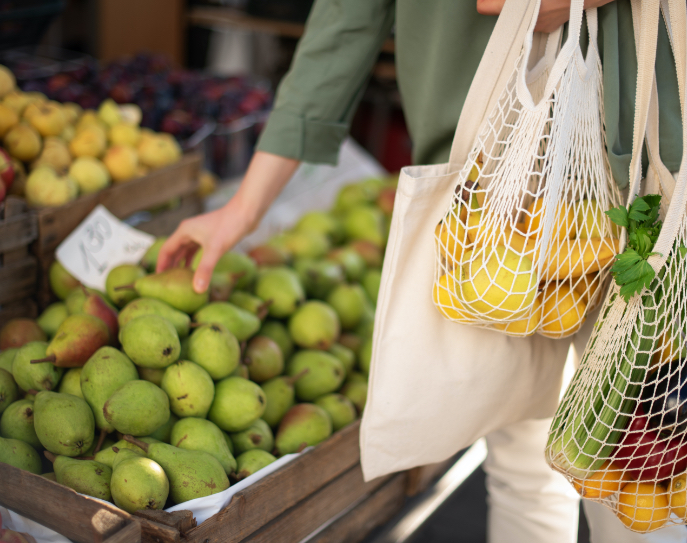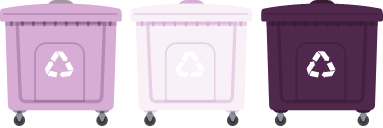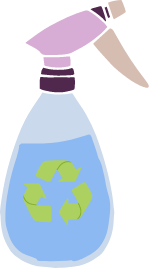Going green
Our Sustainability
The built environment is a sector where improvement is lagging behind
Taking matters into our own hands
We decided to investigate the United Nations Sustainable Development Goals (SDGs) to narrow down the targets we felt passionate about and have the resources to tackle. This has led to the following information: our objectives for over the upcoming years, their relation to the SDGs and our actions to achieve them.
Robert Swan OBE once said, “the greatest threat to our planet is the belief that someone else will save it”, upon this realisation and after research into the climate crises, we have decided that it is no longer acceptable for us to be a bystander, therefore, we are taking matters into our own hands and intend to become sustainable within our means.

To reduce annual gas consumption by 10% by 2023 and by 2024 all gas will be provided by a green supplier.

The Objective
To reduce annual gas consumption by 10% by 2023 and by 2024 all gas will be provided by a green supplier.
Actions
Gas central heating systems produce damaging carbon emissions therefore it is important to reduce its use. To reduce the use of gas throughout Kexgill Group we will be setting up a system that allows our offices to control the heating of individual properties meaning that the heating would be on for six hours a day in total, 6:30-9:00 and 16:30-20:00. This would mean that properties would get up to their selected temperature for the most sociable times of the day (when tenants are waking up and when they are back from university). This should make a significant reduction. Draught excluders will also be provided for all external doors within Kexgill properties to reduce heat escaping. For future property projects, a more efficient and more environmentally friendly insulation, such as hemp or sheep wool, will be used in loft space and wall cavities.
Gas could become obsolete in a matter of years and electric heating is clean because it does not emit polluting gases which is clearly a positive on the environment. Because of this, new and purpose-built accommodation going forward will use electric central heating systems.
For the properties that have gas central heating, we will make the transition to a green provider in 2023 once our current contract expires.
Sustainable Development Goal
This objective aids SDG target 12.2 ‘By 2030, achieve the sustainable management and efficient use of natural resources’, and more specifically indicator 12.2.2 ‘Domestic material consumption, domestic material consumption per capita, and domestic material consumption per GDP’.
This company objective is also in line with the SDG target 7.1 ‘By 2030, ensure universal access to affordable, reliable and modern energy services’, and more specifically indicator 7.1.2 ‘Proportion of population with primary reliance on clean fuels and technology’.
To reduce annual electricity consumption by 5% by 2023 and by 2024 all electricity will be provided by a green supplier.

The Objective
To reduce annual electricity consumption by 5% by 2023 and by 2024 all electricity will be provided by a green supplier.
Actions
The environmental impacts directly related to energy production and consumption include air pollution, water pollution, thermal pollution, and solid waste disposal which all directly cause climate change.
To reduce consumption in this area, Kexgill Group will ensure that at the beginning of the next academic year (2021) all properties with outdoor facilities will have a washing line fitted and wooden pegs provided to reduce dryer use. Also, if an appliance such as a washing machine breaks and is not fixable, it will be replaced with a model that has an eco-wash setting and a higher energy rating. Likewise, if smaller appliances such as kettles break and are not able to be fixed, this will be replaced with more energy efficient models.
By 2022, all properties with communal areas will have sensor lighting fitted that is on a short timer so that lights are not on when they are not required, these lights will still have a switch option for the comfort of our tenants. As and when they come to the end of their life, light bulbs will be replaced with energy efficient alternatives. Please note that any appliance that breaks will be disposed of correctly. Another step we will take is to ensure our tenants are fully aware of the impact leaving an appliance running or leaving a light on would have.
Despite this, there are not hundreds of possibilities for reducing electricity use in this sector therefore, once our current contract expires in 2023, we will make the transition to a renewable energy provider.
Sustainable Development Goal
This objective aids SDG target 12.2 ‘By 2030, achieve the sustainable management and efficient use of natural resources’, and more specifically indicator 12.2.2 ‘Domestic material consumption, domestic material consumption per capita, and domestic material consumption per GDP’.
This company objective is also in line with the SDG target 7.1 ‘By 2030, ensure universal access to affordable, reliable and modern energy services’, and more specifically indicator 7.1.2 ‘Proportion of population with primary reliance on clean fuels and technology’.
To reduce annual water consumption by 8% by 2026.

The Objective
To reduce annual water consumption by 8% by 2026.
Actions
Water is a scarce resource, yet people see it as infinite.
Washing dishes by hand uses approximately 3.5 to 5 times more water than a dishwasher. One action we plan to take to achieve this goal is to gradually integrate dishwashers into the kitchens of each Kexgill property. By introducing Energy Star certified dishwashers into our properties, we could save up to approximately 22,730.45 litres of water per house per year.
The first to receive these will be the newly renovated or built properties where integration is easier, this will be followed by the integration into current properties over the coming years. Dishwashers will be purchased in groups due to up-front cost. However, over time, the use of dishwashers in our properties will reduce the cost of utility bills meaning that money spent should be made back.
A dripping tap wastes at least 5,500 litres of water per year. This problem is easily rectified, and the solution is an action we will take to achieve our water consumption goal.
Every six months, we pledge to have plumbers service every tap and shower head in all our properties. Regarding taps, this will ensure that the internal rubber seals, or washers have not perished and need replacing. In terms of shower heads, this will ensure that the shower valve in still functional, the inner seals are not worn, or whether parts have become corroded or clogged with hard water deposits. If work needs to be done or parts need replacing, we shall do so to ensure no water is wasted.
Currently, Kexgill Group use approximately 397, 433, 560 litres of water per year. We are aiming for an 8% reduction by 2026. This figure is based on the use of dishwashers over hand washing therefore is an estimated figure that we may exceed. Objectives will be observed to ensure we are always doing our utmost.
Sustainable Development Goal
This company objective is in line with the SDG target 6.4 ‘By 2030, substantially increase water-use efficiency across all sectors and ensure sustainable withdrawals and supply of freshwater to address water scarcity and substantially reduce the number of people suffering from water scarcity’, and more specifically indicator 6.4.1 ‘Change in water-use efficiency over time’.
By 2023, 100% of physical waste created by tenants and employees on shift will be disposed of correctly.

The Objective
By 2023, 100% of physical waste created by tenants and employees on shift will be disposed of correctly.
Actions
The average household in the UK produces more than a tonne of waste every year, this collectively is 31 million tonnes per year. To make a real impact, the best thing to do is reduce consumption and thereby waste, however, due to most of the waste accumulated being made by tenants, this would be a difficult task. The best alternative we have is to ensure all waste is being disposed of in the correct manner.
To tackle this objective, as a company we will ensure that all our properties have every recycling bin available in the local area (cardboard/paper, plastics, glass, cans, green waste) and have these labelled efficiently for tenants, explaining exactly what can and cannot be recycled in each bin. These signs will be placed on all bins and a list will be placed on the indoor common room pin boards, as well as this, information regarding this will be regularly posted on our social media platforms. We are aware that some local councils offer more recycling services than others via a collection method. Because of this, in the areas that lack recycling for a specific material for example glass, we will provide our own bins for this and have a fortnightly collection to take this waste to the local tip. This will ensure that nothing is going to landfill that should not be.
Another way we will be ensuring the correct disposal is through charity shop donations at the end of each academic year. As a student accommodation provider, we have many tenants living with us from abroad who buy what they need, for example pots and pans, and then leave it here once their studies are over. It is items like these that are reusable by a new owner therefore, we will prevent them from going to waste by organising a collection of unwanted goods at the end of each tenancy, for anyone’s use, and donate them to a local charity shop.
It is our intention to heavily reduce the amount of waste our tenants are sending to landfill because landfills are not designed to breakdown waste, only store it which is in effect adding to the greenhouse gases being emitted to our atmosphere causing the phenomenon global warming.
Sustainable Development Goal
This company objective is in line with the SDG target 12.5 ‘By 2030, substantially reduce waste generation through prevention, reduction, recycling and reuse’, and more specifically indicator 12.5.1 ‘National recycling rate, tons of material recycled’.
By 2025, every Kexgill property with an outdoor space will have at least 1m² of wildlife friendly habitats.

The Objective
By 2025, every Kexgill property with an outdoor space will have at least 1m² of wildlife friendly habitats.
Actions
Creating more urban green spaces needs to be done to improve biodiversity, produce cleaner air and decrease stress for humans. To aid this, Kexgill will be ensuring that every property with an outdoor space has at least 1m² of wildlife friendly habitats whether this be, a wildflower garden, a herb garden, planting a tree or creating a bug hotel out of logs, bricks and other earthly finds. We acknowledge that 1m² is not a large area which is why this is the least amount of space we will create. This figure was chosen to ensure even the smallest of outdoor spaces would be a habitat for more biodiversity.
Sustainable Development Goal
This company objective will be used to aid SDG target 15.5 ‘Take urgent and significant action to reduce the degradation of natural habitats, halt the loss of biodiversity and, by 2020, protect and prevent the extinction of threatened species’.
By 2023, 80% of cleaning products used will be certified eco-friendly.

The Objective
By 2023, 80% of cleaning products used will be certified eco-friendly.
Actions
Many do not realise that cleaning materials contain thousands of harmful chemicals that work their way into waterways (rivers and oceans) causing extreme pollution. These pollutants can kill marine life through processes such as eutrophication, damaging food chains.
To do our part in protecting the oceans we will be providing certified eco-friendly cleaning products for our property cleaners to use during the end of tenancy deep cleans. These products will be bought in refillable containers to reduce plastic waste as well.
Sustainable Development Goal
This company objective will be used to aid SDG target 14.1 ‘By 2025, prevent and significantly reduce marine pollution of all kinds, in particular from land-based activities, including marine debris and nutrient pollution’ and more specifically indicator 14.1.1 ‘Index of coastal eutrophication and floating plastic debris density’.
By 2025, each Kexgill location across the UK will have formed connections between their tenants, a national homeless charity and food banks for fundraisers and monthly collections of necessities.

The Objective
By 2025, each Kexgill location across the UK will have formed connections between their tenants, a national homeless charity and food banks for fundraisers and monthly collections of necessities.
Actions
As a private student accommodation provider and being in the housing sector an issue close to our hearts is homelessness. It is estimated that 280,000 people were considered homeless in December 2019 in England alone – this is staggering.
To do our bit in supporting this vulnerable group, Kexgill will begin partnering with a national homelessness charity ¬¬¬¬to provide financial support through fundraising activities meanwhile creating publicity for the charity using our personal social media platforms. Each Kexgill UK destination will also coordinate with local food banks and organise monthly collections encouraging both staff and tenants to donate the items the food banks need.
Sustainable Development Goal
This company objective is to aid both SDG target 1.2 ‘By 2030, reduce at least by half the proportion of men, women and children of all ages living in poverty in all its dimensions according to national definitions and target 2.1 ‘By 2030, end hunger and ensure access by all people, in particular the poor and people in vulnerable situations, including infants, to safe, nutritious and sufficient food all year round’.
Author, Jessica Marsh as Sustainability Advisor
